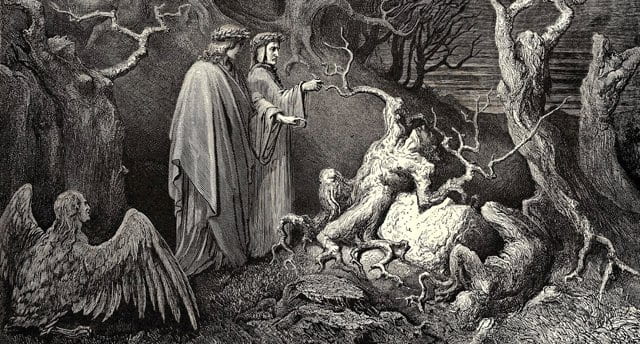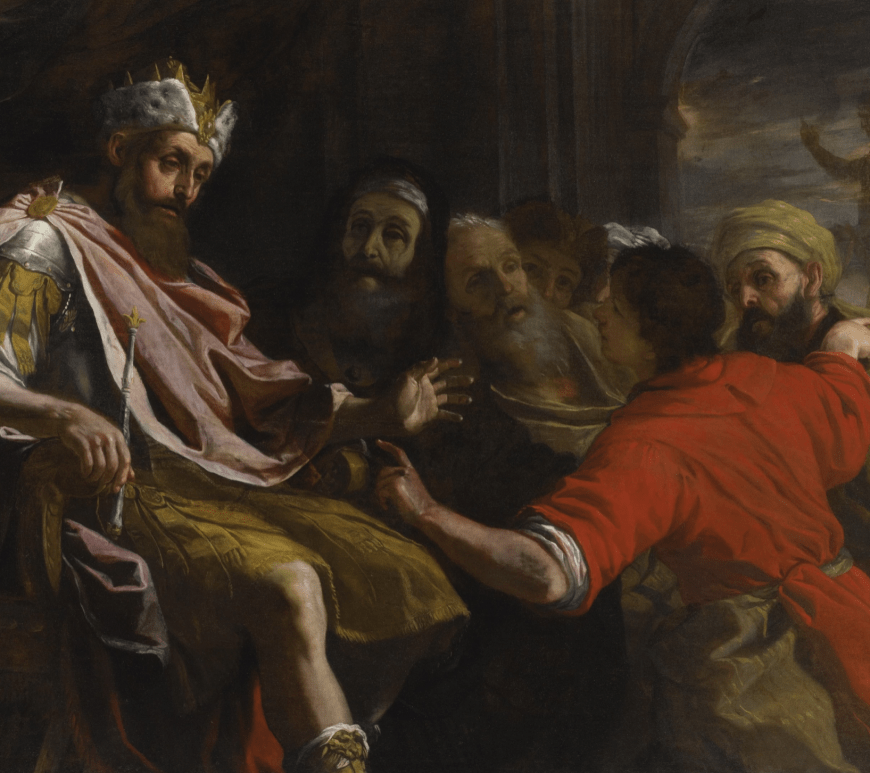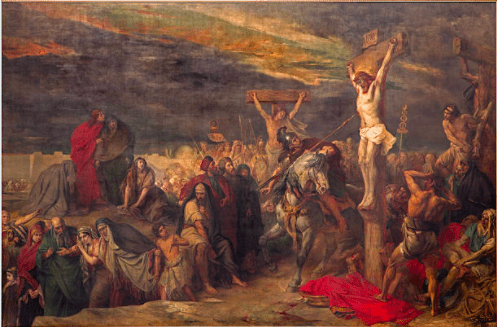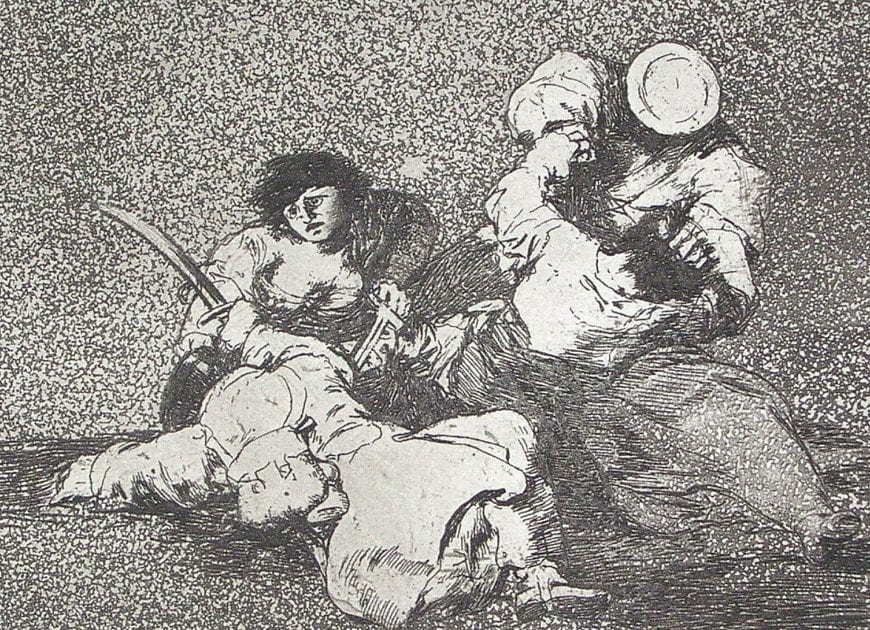
The Passive Voice and Double Meanings in Daniel
One of the more vivid scenes in Daniel occurs when Nebuchednezzer prepares to throw the three young men into the flame. Though the actual burning turns out to be anticlimactic, the paragraph of preparation is rife with anticipation and evil depictions of the flames. Nebuchednezzer commands the oven to be heated, watches as the flames are slowly and cruelly stoked, and finally gathers everyone to watch the torture (263). The…

The Prohibition on Witnessing God
One of the greatest differences between the depiction of humanity’s fall in the Vulgate Bible and the Old English poem Genesis B is the nature of Eve’s temptation by the snake. While in the Vulgate the snake tells Eve that upon eating the apple her “eyes shall be opened: and [she and Adam] shall be as Gods, knowing good and evil,” in Genesis B she is told that she…
Witnessing Christ’s Passion & its Implication for St. Margaret
Group: Frances, Jonah, Spencer, Jo As St. Margaret undergoes torture at the hand of the Roman Governor, she seemingly negotiates her legacy with God. She implores, “God… hear my prayer that whoever writes out my passion or hears it read from that time have his sins blotted out” (133). A dove descends and grants Margaret her prayers. What theological backstory does this call to the reader have? In his work…

Part I. Reinterpretation and Identification with the Cross
Note: Before reading, I just wanted to write that some of the images seen here in this two-part post are quite graphic and may cause emotional distress. I know the topic is already quite brutal and distressing, but I do not want to cause undue harm because my work is work for class. So I urge you to use your judgment and do not read this post if extreme violence,…

The Imperfection of Memory and the Limitations of Testimony
“The sound of a dream came to the tyrant, wandering into his mind, about how the world was wondrously transformed, unlike the ages before the new creation. In sleep the truth was made known to him that the cruel end of each empire must happen, must come about for earth’s joys, Then the wolf-hearted one awoke, Babylon’s guardian, who previously had slept in a drunken stupor. He was not happy…
Image of Violence
Thinking about the Augustine and Sontag reading comes the prominent theme of how humans are drawn to violence. This is not necessarily through committing acts of violence, but by witnessing it. Why is it so hard to tear your gaze away from an act of violence once it begins? Why is there this primal curiosity associated with watching it through the end even if the viewer may have an…
Identity and Looking Upon the Divine in Daniel and The Life of St Margaret
Group: Jonah, Spencer, Frances, and Jo The phenomenon of looking can be thought of as consisting of two composite parts: seeing and interpreting. Seeing, the visual experience of something happening before one’s own eyes, or gazing upon a representation such as a photograph or piece of visual art, forms the principal step of looking. However, it is often subservient to the act of interpreting. Seeing is merely the intake of…

Power, Jesus, and Tony Stark
Today’s discussion inspired many thoughts about the allure of violence and why some people continue to actively witness violence while it feels disgusting and irrational to others. According to Sontag, she says that “Men make war. Men (most men) like war, for men there is ‘some glory, some necessity, some satisfaction in fighting’ that women (most women) do not feel or enjoy” (3). While it is unclear how true the…

The Temporality of Witnessing
When the three youths are saved from the flames in the Old English verse-form of the Book of Daniel, Nebuchadnezzar can hardly believe his eyes. At the sight of this miracle, Nebuchadnezzar declares, “Now I truly see four people there – I do not deceive myself at all” (lines 412-413). At this moment of witnessing, Nebuchadnezzar appears to change his ways. He sees the youths’ bonds incinerated, their clothing intact,…

Death, Where Is Your Victory? A Medieval Christian Perspective on Glory and Suffering in the Life of St. Margaret
The Old English Life of Saint Margaret ends, as the title might suggest, with the protagonist St. Margaret’s death. After Margaret is killed, angels “come over the body of the holy Margaret and bless it,” singing, “‘Holy, holy, holy, Lord God, glorious King of hosts, heaven and earth are full of your glory.’” At first glance, this concluding moment may seem strange or confusing. Margaret, who has just slain a…



